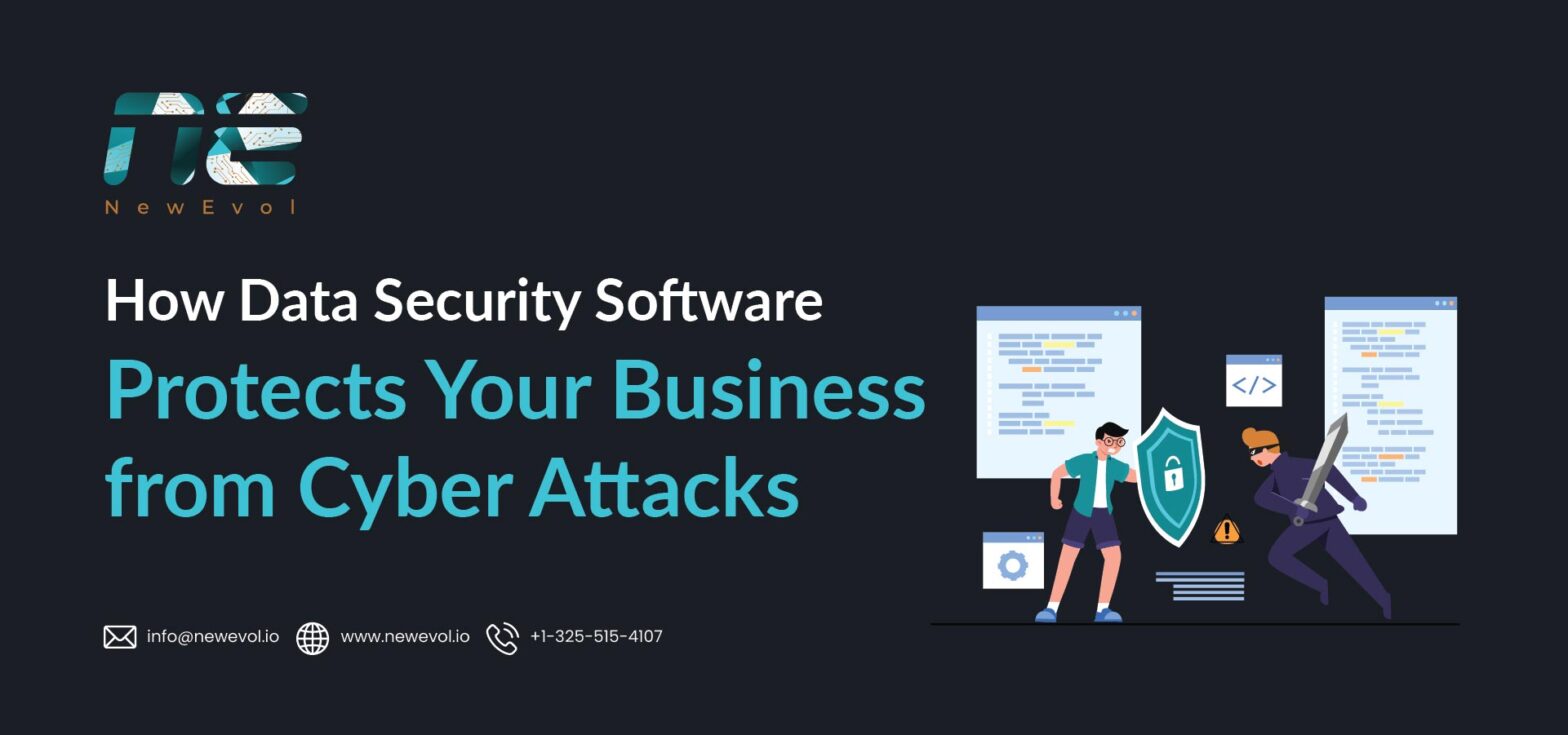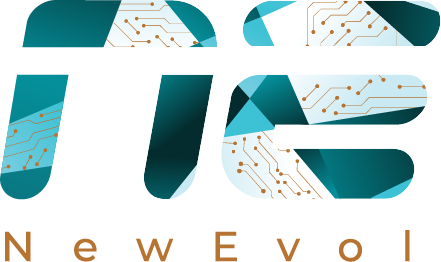How Data Security Software Protects Your Business from Cyber Attacks

Businesses in Malaysia are increasingly relying on cloud computing, mobile platforms, IoT devices, and data-driven applications to drive growth and innovation. While these technologies enhance efficiency and customer experience, they also create complex cybersecurity challenges. Cyber threats have evolved beyond simple, isolated attacks—they are now sophisticated multi-vector campaigns that can exploit even minor weaknesses in an organization’s IT ecosystem.
To safeguard critical data, maintain business continuity, and comply with regulatory frameworks, Malaysian enterprises are increasingly relying on data security software as part of their broader cybersecurity services in Malaysia. These platforms offer a comprehensive approach to preventing, detecting, and mitigating cyber attacks, enabling organizations to operate securely in a digital-first environment.
Understanding Data Security Software
Data security software encompasses a suite of tools, technologies, and processes designed to protect sensitive information from unauthorized access, corruption, or theft. Unlike traditional antivirus solutions or perimeter-focused security measures, modern data security platforms address the full spectrum of cyber risks, including insider threats, ransomware, phishing, and advanced persistent threats (APTs).
Key capabilities typically include:
- Data Encryption – Secures information in transit and at rest, ensuring that unauthorized parties cannot interpret or misuse it.
- Access Controls and Identity Management – Ensures only authorized users can access sensitive data, reducing insider threat risks.
- Data Loss Prevention (DLP) – Monitors, detects, and prevents unauthorized data transfers or leaks.
- Threat Detection and Analytics – Uses AI and machine learning to identify anomalies, suspicious activities, and potential attacks.
- Compliance Management – Supports adherence to local and global regulations, such as Malaysia’s Personal Data Protection Act (PDPA), ISO 27001, and GDPR.
For Malaysian businesses, leveraging comprehensive data security software is no longer optional—it is a strategic imperative for digital resilience.
The Growing Cyber Threat Landscape in Malaysia
Malaysia has seen a steady rise in cybercrime incidents, affecting sectors such as finance, healthcare, retail, and government services. The threat landscape is shaped by:
- Ransomware Attacks – Increasingly targeted at enterprises that store critical business or customer data.
- Phishing Campaigns – Sophisticated social engineering tactics exploit human error to gain unauthorized access.
- Insider Threats – Employees or contractors inadvertently or maliciously compromise sensitive data.
- IoT Vulnerabilities – Smart devices and industrial IoT create new attack vectors in connected environments.
- Cloud and Hybrid Infrastructure Risks – Data hosted across multiple platforms is vulnerable to misconfigurations, unauthorized access, and supply chain threats.
According to recent studies, Malaysian organizations report a growing number of data breaches annually, emphasizing the urgent need for advanced data security solutions that can proactively detect and prevent cyber incidents.
How Data Security Software Protects Your Business
The Malaysia Data Security Software Market was valued at approximately USD 41.12 billion in 2024 and is forecasted to grow at a CAGR of 12.8% from 2026 to 2033, reaching USD 118.58 billion by 2033. Growth drivers include government AI regulations, major investments by global tech firms, increased cloud adoption, and stringent data protection laws like PDPA.
1. Comprehensive Threat Detection
Modern data security software employs AI-driven analytics, machine learning, and behavior monitoring to detect anomalies that may indicate a cyber attack. For instance, unusual access patterns, data exfiltration attempts, or abnormal system behavior can trigger immediate alerts, enabling security teams to investigate before the threat escalates.
By correlating data across endpoints, networks, applications, and cloud services, these platforms provide holistic visibility, reducing blind spots that cybercriminals could exploit.
2. Robust Data Encryption
Encryption is fundamental to protecting data from unauthorized access. Data security software applies advanced encryption standards (AES) to safeguard information both at rest and in transit. This ensures that even if cybercriminals intercept data, it remains unintelligible and unusable, preserving confidentiality and mitigating reputational and financial risks.
3. Access Controls and Identity Management
Unauthorized access is one of the leading causes of data breaches. Data security platforms incorporate role-based access control (RBAC), multi-factor authentication (MFA), and identity verification to ensure that only legitimate users can access sensitive information.
For example, a financial institution in Malaysia can use these controls to ensure that only authorized personnel access customer account information, preventing potential fraud or insider misuse.
4. Data Loss Prevention (DLP)
Data loss prevention mechanisms monitor data movement within and outside the organization. This includes detecting unauthorized file transfers, copying to removable devices, or sharing via insecure channels.
By enforcing DLP policies, organizations can prevent accidental or malicious data leakage, protecting intellectual property, customer information, and regulatory compliance obligations.
5. Automated Incident Response
Data security software often integrates automated response workflows to mitigate threats in real-time. For example:
- Automatically quarantining compromised endpoints
- Blocking suspicious network connections
- Alerting security teams for immediate investigation
This automation reduces mean time to respond (MTTR) and minimizes the operational impact of cyber attacks.
6. Regulatory Compliance and Audit Support
Compliance with Malaysia’s PDPA, industry-specific standards, and global regulations is essential for businesses operating locally and internationally. Data security software facilitates:
- Automated logging of access and data activity
- Generation of compliance reports and audit trails
- Real-time monitoring of adherence to data protection policies
By ensuring compliance, organizations reduce legal exposure while demonstrating due diligence and trustworthiness to clients, partners, and regulators.
7. Protection Against Ransomware and Malware
Ransomware and malware attacks can disrupt operations and cause severe financial losses. Data security software employs advanced threat intelligence, behavioral analytics, and sandboxing to detect malicious code before it can compromise systems. Combined with automated backup and recovery solutions, these platforms ensure business continuity even in the event of an attack.
8. Continuous Monitoring and Analytics
Modern threats evolve constantly, making static security measures insufficient. Data security platforms offer continuous monitoring and predictive analytics, enabling organizations to anticipate attack vectors, identify vulnerabilities, and proactively strengthen defenses.
Strategic Benefits for Malaysian Enterprises
Investing in data security software yields both operational and strategic advantages:
- Risk Mitigation: Reduces the likelihood and impact of data breaches.
- Operational Efficiency: Automates routine security tasks, freeing teams to focus on strategic initiatives.
- Customer Trust: Demonstrates commitment to safeguarding sensitive information, enhancing brand reputation.
- Competitive Advantage: Compliance and strong cybersecurity posture can differentiate businesses in the marketplace.
- Business Continuity: Ensures uninterrupted operations even in the face of cyber incidents.
Best Practices for Implementing Data Security Software
The Malaysia Data Center Physical Security market is estimated at USD 37.08 million in 2025, expected to grow at a CAGR of 18.3% through 2030, reflecting growing investments in securing digital infrastructure.
- Conduct a Risk Assessment – Identify critical assets, data flows, and potential vulnerabilities.
- Integrate with Existing Infrastructure – Ensure the software complements existing firewalls, SIEM, endpoint protection, and cloud services.
- Define Clear Policies and Access Controls – Establish governance frameworks for data access and handling.
- Leverage AI and Automation – Utilize intelligent threat detection and automated response capabilities.
- Continuous Training and Awareness – Equip employees with knowledge about phishing, social engineering, and secure data handling.
- Regularly Review and Update – Continuously monitor system performance, threat intelligence, and regulatory compliance.
NewEvol’s Data Security Solutions
NewEvol offers advanced data security software designed to protect Malaysian enterprises from evolving cyber threats:
- AI-Driven Threat Detection – Identifies anomalous behavior and emerging threats across networks and endpoints.
- Comprehensive DLP and Access Controls – Ensures sensitive information remains secure, whether on-premises or in the cloud.
- Automated Incident Response – Mitigates risks in real-time, reducing downtime and operational impact.
- Regulatory Compliance Support – Facilitates PDPA compliance, audit readiness, and reporting requirements.
- Continuous Analytics and Monitoring – Provides predictive insights and actionable intelligence to enhance cybersecurity posture.
By integrating NewEvol’s data security software, Malaysian organizations can strengthen resilience, safeguard critical assets, and confidently embrace digital transformation.
End Note
As cyber threats become increasingly sophisticated and pervasive, Malaysian enterprises cannot rely solely on reactive or fragmented security measures. Data security software offers a holistic, intelligent, and proactive approach to protecting sensitive information, ensuring business continuity, and maintaining regulatory compliance.
By deploying advanced solutions like NewEvol, businesses gain the tools to detect, prevent, and respond to cyber attacks effectively, transforming cybersecurity from a defensive necessity into a strategic enabler of innovation and growth.
FAQs
1. What is data security software?
Data security software is a suite of tools and processes designed to protect sensitive information from unauthorized access, corruption, or theft.
2. How does it prevent cyber attacks?
By combining encryption, access control, threat detection, DLP, and automated incident response to proactively identify and mitigate risks.
3. Why is data security critical for Malaysian businesses?
Increasing cybercrime, regulatory obligations under PDPA, and digital transformation make robust data protection essential.
4. Can it help with compliance?
Yes, modern platforms provide audit trails, reporting, and monitoring to support PDPA and other regulatory requirements.
5. What makes NewEvol’s solution unique?
NewEvol integrates AI-driven threat detection, automated response, DLP, and continuous analytics to provide a comprehensive, intelligent, and proactive security framework for Malaysian enterprises.

